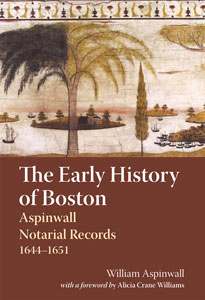 The first nine steps in my process for creating entries for the Early New England Families Study Project are covered here and here.
The first nine steps in my process for creating entries for the Early New England Families Study Project are covered here and here.
10. Town Histories, Genealogical Dictionaries, Town Records (Town). I can access almost any classic published history on-line, many of which include genealogical sections, as well as standard “dictionaries” of families associated with a town, such as Bond’s Watertown and Wyman’s Charlestown Genealogies. An essential regional source not available online (but available as a reprint from NEHGS) is Genealogical Dictionary of Maine and New Hampshire. Published records of a town – other than vital records – such as Jeremy Bangs’ records for Sandwich (mentioned in an earlier post), also fall into this category. Continue reading Cheat Sheets: Part Three
